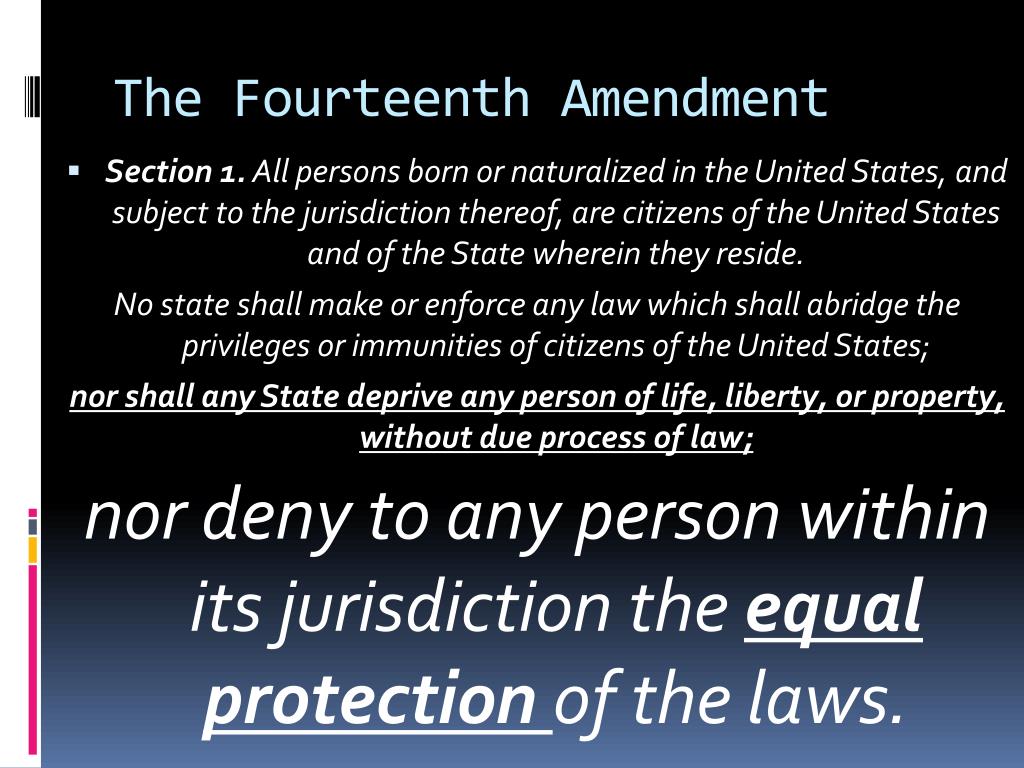

But when the right to vote at any election for the choice of electors for President and Vice President of the United States, Representatives in Congress, the Executive and Judicial officers of a State, or the members of the Legislature thereof, is denied to any of the male inhabitants of such State, being twenty-one years of age, and citizens of the United States, or in any way abridged, except for participation in rebellion, or other crime, the basis of representation therein shall be reduced in the proportion which the number of such male citizens shall bear to the whole number of male citizens twenty-one years of age in such State. Representatives shall be apportioned among the several States according to their respective numbers, counting the whole number of persons in each State, excluding Indians not taxed. No State shall make or enforce any law which shall abridge the privileges or immunities of citizens of the United States nor shall any State deprive any person of life, liberty, or property, without due process of law nor deny to any person within its jurisdiction the equal protection of the laws. "All persons born or naturalized in the United States and subject to the jurisdiction thereof, are citizens of the United States and of the State wherein they reside. An experienced discrimination attorney can help you fight for your rights and achieve a just outcome. If you've been discriminated against, remember that you have options. And the enforcement clause gave Congress the power to pass the legislation necessary to enforce the amendment - which later led to the Voting Rights Act of 1965. The disqualification clause bans those who "engaged in insurrection" from holding public office.

The apportionment clause gives the federal government the ability to punish states (by reducing their representation in Congress) if they unconstitutionally limit the right to vote. Most importantly, it ensured that all United States citizens, including those formerly enslaved, were entitled to the same rights under the law. It accomplished many different objectives all at once. In 1866, during the post-Civil War period known as Reconstruction, Congress passed the Fourteenth Amendment.


 0 kommentar(er)
0 kommentar(er)
